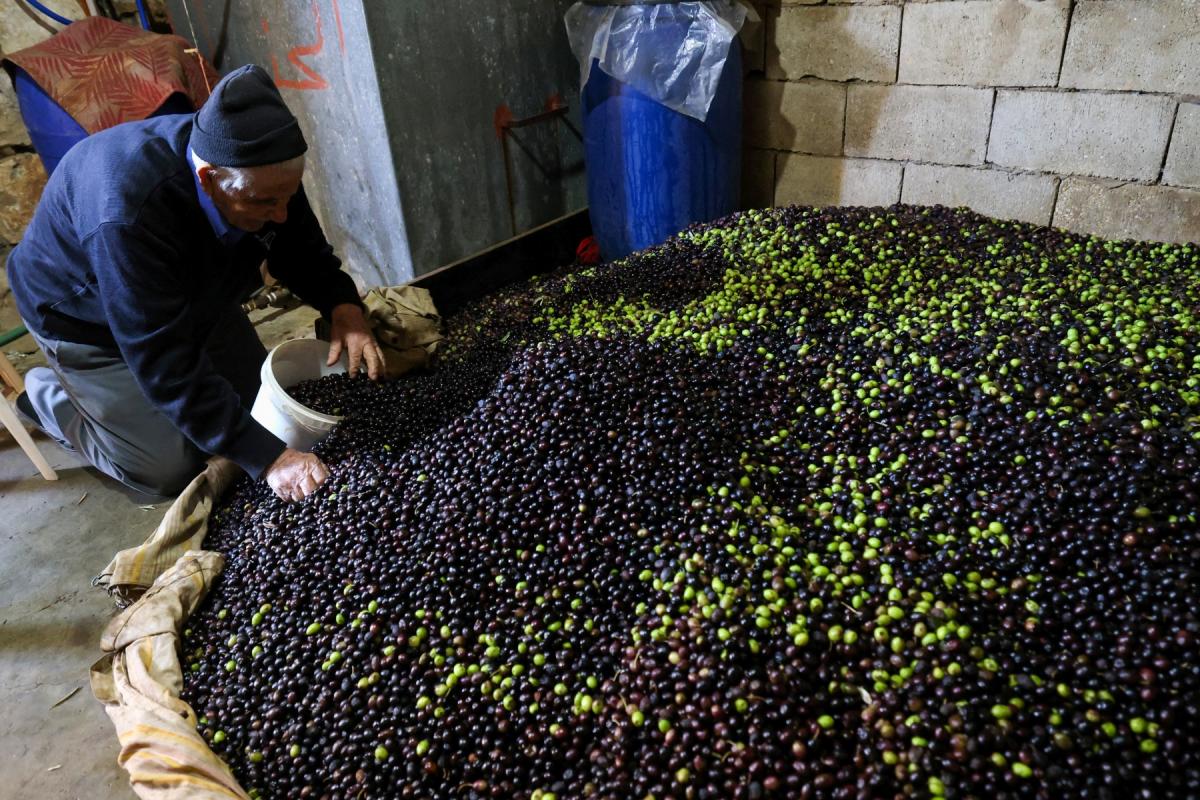For the country farmer, the opening line of Fairuz’s famous song “It wasn’t meant to be this way” comes naturally when asked about the olive season. Their reply is always the same: “Olives used to be different.” And in this context, the word “used to” carries its grammatical weight: it elevates nostalgia for a time when olives had a unique taste and meaning, and it underscores today’s distorted reality of shrinking yields, rising production costs, and the loss of olives’ beauty and symbolism in the Levantine, and particularly the Lebanese culture.
A Season with Problems
Like other agricultural products, this year’s olive season opened with three main challenges:
- Declining yields — smaller, shriveled fruit due to climate change and unusual autumn weather.
- High costs — soaring expenses for labor and pressing.
- Marketing difficulties — Lebanese oil is facing unfair competition from smuggled, poor-quality substitutes.
Farmers Speak Out
One farmer puts it bluntly: while the first problem is beyond their control, the others are “of our own making.” He explains that Syrian labor, now responsible for nearly 90% of harvesting, dictates prices: $25–30 for pickers and $20 for gatherers, with little room for negotiation. Harvest season, once a family festival where parents, children, and relatives worked together and paid pressing fees in oil rather than cash, has lost its communal spirit. Pressing mills now demand money, not oil. Meanwhile, chaos in the market and profiteering by well-connected traders have left farmers unable to sell their produce.
“Are these not problems of our own creation?” the farmer asks.
By the Numbers
Lebanon has around 20 million olive trees, producing roughly 500,000 tons of olives each year. Most are pressed into an average of 75,000 tons of olive oil—well above local consumption needs. Once a lucrative export, Lebanese olive oil is now threatened by smuggling and counterfeiting. Fake oils—sold as “extra virgin”—flood the market at 60% below the real price, while foreign markets remain closed to Lebanese products. Even large national institutions that used to purchase in bulk have seen their budgets slashed by the financial collapse.
Fixing Labor Wages
To confront exploitation by brokers and curb smuggling, the coalition of olive growers in northern Lebanon introduced new rules:
- $10 for pickers
- $8 for gatherers
- A seven-hour workday counted from the time work begins in the orchard
They also banned “ground picking” and unauthorized entry to orchards. Municipalities were urged to enforce these rates, with local police and guards protecting groves against theft. Farmers were advised not to rush the harvest, ensuring olives are fully ripe before picking.
Farmers also demanded protection from theft and overgrazing, calling on the army to secure orchards amid rising insecurity caused by roaming herds and organized gangs.
Fair Prices for a Fragile Season
Despite lower yields this year, combined with leftover stock from last season, production still covers twice Lebanon’s domestic consumption, says George Constantin Al-Aynati, founder of the National Committee for the Protection of Lebanese Olive Oil. He stresses there is no need to import olives or oil, calling import licenses “a fatal stab in the back of the sector.”
The real danger, he warns, is smuggled oil laced with hazardous chemicals, often made from Turkish hazelnut residue. He also rejects price hikes, noting that a can of extra virgin Lebanese oil sells at around $130, with slight increases for organic or premium varieties. What matters most, he insists, is shielding farmers from trader speculation and preventing flocks of goats and sheep—or outright thieves—from stripping the groves.
Beyond Nostalgia
Fairuz’s nostalgic song may recall a past that cannot return, but reviving the olive sector is no sentimental luxury. It is an economic necessity. Expanding olive cultivation, modernizing pressing and packaging techniques, and opening new export markets would transform olives into a cornerstone of economic recovery—creating tens of thousands of jobs and restoring the unique place of olive oil in Lebanon’s cultural and economic identity.
Please post your comments on:
[email protected]
 Politics
Politics













